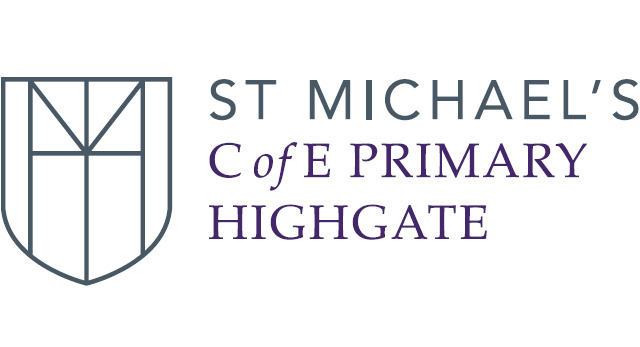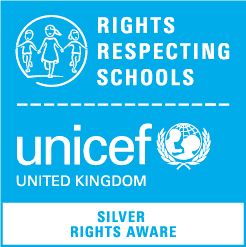Teaching British Values
At St. Michael’s School, we work within a Christian philosophy and positively promote our Christian ethos. We aim to provide the best possible education to prepare and equip children for life in our multi-faith and multi-cultural world.
We wish for our children to acquire a spirit of enquiry, positive attitudes, and a concern for others, all within a caring community. Each child will be actively encouraged to develop their own capabilities to the full. We will recognise the worth and value of each child, and the importance of their self-esteem. In November 2014 The Department for Education published guidance on promoting British values in schools. All schools have a duty to ‘actively promote’ the fundamental British values of democracy, the rule of law, individual liberty, and mutual respect and tolerance of those with different faiths and beliefs. At St. Michael’s CofE School we endorse the Christian values. These values are taught and underpin our whole curriculum. So that, children are given every opportunity to practice key learning behaviours that support the school’s vision to create valued members of our community. At St. Michael’s CofE School we will actively challenge pupils, staff or parents expressing opinions contrary to fundamental British Values, including extremist views. Pupil voice is used as a tool for school improvement. The Class School Council books and school council display in the KS2 building is an example of pupil’s ideas for the future of their school and strengths that they have identified and are proud of. Pupil questionnaires are used to priorities actions and to evaluate the success and impact of change. The school has four Houses and each House has a Captain and a Vice-Captain selected from Year 6. The children in Year 6 vote for the Captain and Vice-Captain. In Year 5 pupils learn about Government in their PSHE lessons. Parents complete a questionnaire once a year and comments are used to improve the school. The concept of law is introduced through the development of rules which govern the school. Pupils, parents and staff agree the rules by which the school is to be run, the rationale for the rules and the sanctions which any failure to uphold will incur. A consistently applied Behaviour Policy is shared with the children and visible in all areas of the school. Expectations are reinforced regularly and opportunities are sought frequently to praise positive choices. Pupils’ modelling behaviour consistent with the school’s high expectations are recognised and used as role models to others. The policy allows time for pupils to talk through poor behaviour choices and discuss strategies they may use to resolve conflict. Trained playground buddies operate on the playground to support children and help them. Through assemblies and the school’s PSHE/Citizenship curriculum, children develop an understanding of law appropriate to their age. Access to high quality text gives pupils a safe way of exploring the ‘breaking’ of laws and an opportunity to discuss consequences when this occurs. Pupils are taught explicitly that laws keep us safe. Regular contact with our community police officers builds positive relationships with the Police from an early age and children understand their role in maintaining a peaceful community. Visits from other external agencies such as the Fire service and Health professionals reinforces their understanding of the responsibilities held by various professions. Protective behaviours are taught across the school and every child is aware that they have the right to feel safe. They are also taught about freedom of speech and how to propose and oppose a motion in polite but direct way. Children are valued for their differences and there is a wide variety of extra-curricular clubs to enable children to try new things, develop new skills and practice existing ones. Care is taken to provide equal opportunities for all genders such as a boys’ and girls’ football team. The children can contribute to the School newsletter and the School Council which reflects the issues that are important to them. Time and care is taken to know each child as an individual and weekly PSHE lessons give children a chance to share their feelings and opinions in a safe way. Opportunities for children to take on more responsibility within the school are encouraged. Older children help younger pupils during the lunchtimes by supporting children as ‘Play Pod Buddies’ in the playground. Pupils also help the children and staff in the dinner hall to contribute to a sociable family experience. When these jobs are changed over, the children support their peers to ensure a fair hand over process. Class rules are drawn up at the beginning of each academic year to set clear expectations of respectful behaviour. If pupils show disrespect to one another, this is dealt with immediately through the school’s behaviour policy and Parents/Carers are contacted. Time is given for repair and restoration and to talk about the behaviour which is disrespectful to others. An Anti-Bullying week is held annually and highlighted throughout the year. During these sessions, children are taught to value differences in others and themselves and to respect others. A consistent behaviour policy is in place and children take responsibility, with support when needed, to resolve conflict and repair relationships. Friendship benches in the playground give an opportunity for children to make new friends. Be the Best you can be is part of the PHSE and facilitates children in their journey to achieve their goals through the Olympic and Para-Olympic values, so encouraging children to value themselves and others. Within the partnership of the Haringey Sporting Partnership, all children at St. Michael’s CE School participate in sports events. These ensure children experience competitive events and have an opportunity to apply their sportsmanship skills with other schools. The school follows the LDBS RE syllabus which ensures that the children learn about all the religions of the world. Assemblies contribute to the knowledge of special occasions. The school has a link to the Christian ‘Pathways’ organisation who come in half termly for assemblies. The local Clergy lead assembly once a week. Resources in classrooms are regularly audited to ensure that they reflect our multicultural society and stereotypes are challenged. Part of our vision at St. Michael’s is to prepare the children of the future to become valued members of society. Promoting British Values enables children to develop a sense of community and begin to understand their responsibilities and role within it. A business and commerce enterprise scheme is undertaken in Year 6 where children learn the mechanism behind researching and setting up a mini-enterprise. This enables the children to develop team work, communication skills and parents are encouraged to assist the children and contribute their expertise.British Values
Democracy
The Rule of Law
Individual Liberty
Mutual Respect
Tolerance of those of Different Faiths and Beliefs
Business and Commerce






